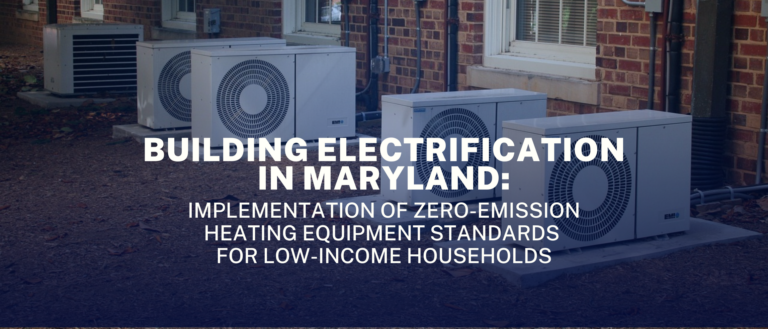Showing 244 results

James Goodwin | February 2, 2026
To the extent that people think about the U.S. Environmental Protection Agency (EPA) at all, they likely think of an institution that works to safeguard our health and well-being, and that of our environment. So, The New York Times made quite a splash recently when it reported that the agency had adopted a new policy under which it would stop considering the health benefits of two of the most harmful and pervasive air pollutants: fine particulate matter and ozone.

Sophie Loeb | January 28, 2026
Two policy briefs published by the Center in recent months explain that even before the second Trump administration and the 119th Congress launched their broadsides against the Inflation Reduction Act (IRA), the scale and pacing of decarbonization was already lagging at investor-owned utilities. Most customers in the U.S. are served by investor-owned utilities. Due to their complicated mix of historical industry capture and political power, information asymmetries in the regulatory context, the profit motive of energy production and distribution, and tax policy, IOUs are often disincentivized from advancing an equitable clean energy transition. Our policy briefs explore several alternatives to the IOU model as part of a just transition to clean energy.

Hannah Wiseman, Seth Blumsack | December 15, 2025
As projections of U.S. electricity demand rise sharply, President Donald Trump is looking to coal – historically a dominant force in the U.S. energy economy – as a key part of the solution. In an April 2025 executive order, for instance, Trump used emergency powers to direct the Department of Energy to order the owners of coal-fired power plants that were slated to be shut down to keep the plants running. But there remain limits to the president’s power to slow the declining use of coal in the U.S.

Daniel Farber | November 13, 2025
Although Congress vetoed California’s most recent vehicle regulations, the state can pass new regulations so long as there are significant differences from the ones Congress overturned. The Trump administration has been arguing all along that California lacks the power to regulate greenhouse gases from vehicles. Those regulations are a crucial part of the state’s climate policy. Sooner or later, courts will need to decide the extent of California’s legal authority over vehicle emissions. The issues are complex, involving an unusual statutory scheme. Here’s what you need to know, and why I think California should win this fight.

James Goodwin | October 27, 2025
The current Trump administration has made individualized exceptions and waivers one of the signature features of its governing approach.

Bryan Dunning, Christopher Stix | October 14, 2025
In the past year, Maryland residents have seen their heating bills skyrocket, which has largely been tied to increased costs of methane gas distribution. These costs are expected to worsen as increased spending on the distribution system must be repaid over the next several decades. At the same time, greenhouse gas emissions from burning fossil fuels in the home contribute substantially to climate change, and pollution from fossil fuel heating also has a substantial impact on residents’ health. In a new report published today, we explore policies designed to tackle these challenges and provide analysis and recommendations on how to make the transition to updated heating technologies and building electrification more equitable and effective for low-income Marylanders.

Catalina Gonzalez, James Goodwin | August 26, 2025
Last week, the Environmental Protection Agency (EPA) hosted four days’ worth of hearings to gather public testimony on its proposal to rescind the 2009 endangerment finding and the suite of existing greenhouse gas (GHG standards for cars and trucks that the finding supplies the legal justification for. The vast majority of the participants testified in strong opposition to the proposal, and included a broad cross-section of our society: faith leaders; a high school student; community organizers; and concerned grandparents.

Daniel Farber | August 21, 2025
Not that long ago, conservatives demanded that the government balance costs and benefits. They still do, but with a twist: They demand special limits on consideration of environmental effects. But that makes no sense. Whatever rules we have about costs should apply to all types of costs, and the same with benefits. The result of skewing the analysis is, not surprisingly, that we get conservative results more often.

Daniel Farber | July 29, 2025
If a tree falls in the forest but no one hears it, does it still make a sound? If a law hasn’t been formally repealed but can be violated with complete impunity, is it still in effect? I’ll leave the first question to philosophers, but the second one could have major legal implications. Here’s why.